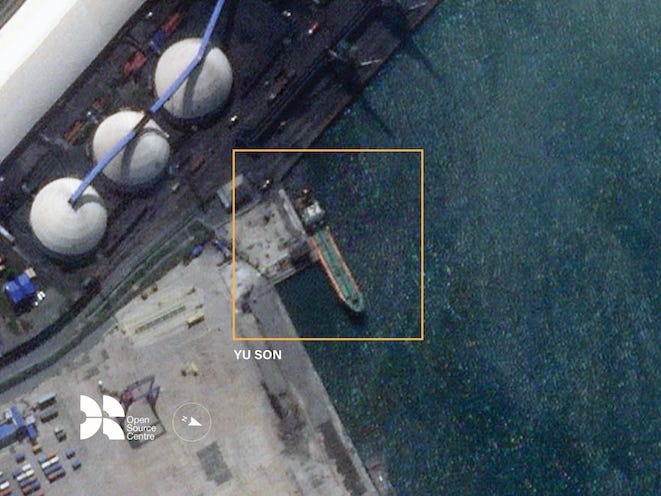A recent investigation using satellite imagery has revealed that Russia has supplied North Korea with at least 1 million barrels of oil since March 2023, highlighting an increasing partnership between the two nations. This collaboration occurs against the backdrop of international sanctions imposed by the United Nations Security Council, which Russia, a permanent member of the Council, has notably disregarded. Such findings serve not only to emphasize the growing ties between Russia and North Korea but also to reflect Russia’s willingness to circumvent international norms in pursuit of its objectives, particularly its ongoing conflict in Ukraine.
The analysis, conducted collaboratively by the BBC and the UK-based Open Source Centre, meticulously tracked oil tanker routes emanating from Russia’s Vostochny port to various North Korean ports. By examining aerial and satellite images, researchers found that vessels departing North Korea appeared empty but returned heavily laden with oil, indicating substantial shipments. Such transfers are evidently in violation of UN sanctions, which limit North Korea’s annual oil imports to 500,000 barrels. Intriguingly, Russia’s actions coincide with its veto of a UN resolution aimed at extending the mandate of the panel monitoring these sanctions, effectively dismantling oversight mechanisms.
According to the report’s findings, the oil supplied by Russia is allegedly in exchange for military assistance, including the provision of ammunition and troop deployments to support Russia’s military efforts in Ukraine. Notably, this relationship has been intensified with North Korean leader Kim Jong Un’s signing of a mutual defense agreement with Russian President Vladimir Putin in June. Furthermore, it has been reported that approximately 11,000 North Korean troops may have already been sent to aid Russia’s war, with projections suggesting that this figure could rise significantly in the coming year.
Experts estimate that North Korea benefits considerably from this partnership, as the influx of oil provides it with stability that has been lacking since the sanctions were first imposed. Analysts emphasize that while the relationship seems transactional, it offers North Korea critical resources alongside access to advanced technology and other forms of support. The arrangement allows Kim to stabilize his regime while also acquiring much-needed supplies to bolster his military capabilities. In return, North Korea reportedly receives substantial compensation — as much as $2,000 per soldier per month — which contributes to the regime’s financial stability.
The implications of this growing alliance between Russia and North Korea are significant, not only for the bilateral relationship but also for regional security dynamics in East Asia and beyond. The military and economic exchanges between the two nations point to a shift in the broader geopolitical landscape, particularly as both countries find themselves increasingly isolated on the world stage. Analysts warn that the potential deployment of large numbers of North Korean troops and resources to support Russian military operations could further complicate the situation in Ukraine.
In conclusion, the recent findings of the satellite imagery analysis shed light on the evolving relationship between Russia and North Korea, revealing a concerning disregard for international sanctions and norms. As both nations deepen their cooperation, strategic observations suggest that this partnership may offer mutual benefits, with profound implications for global security and stability. The ongoing transactions signify a pivotal moment in East Asian geopolitics, indicating a potential escalation in military engagements and a reconfiguration of alliances in response to shifting international power dynamics.

